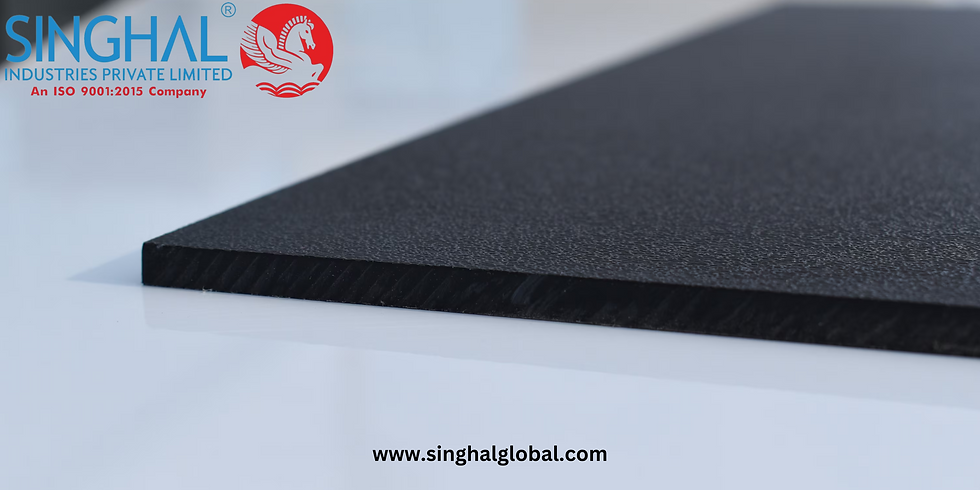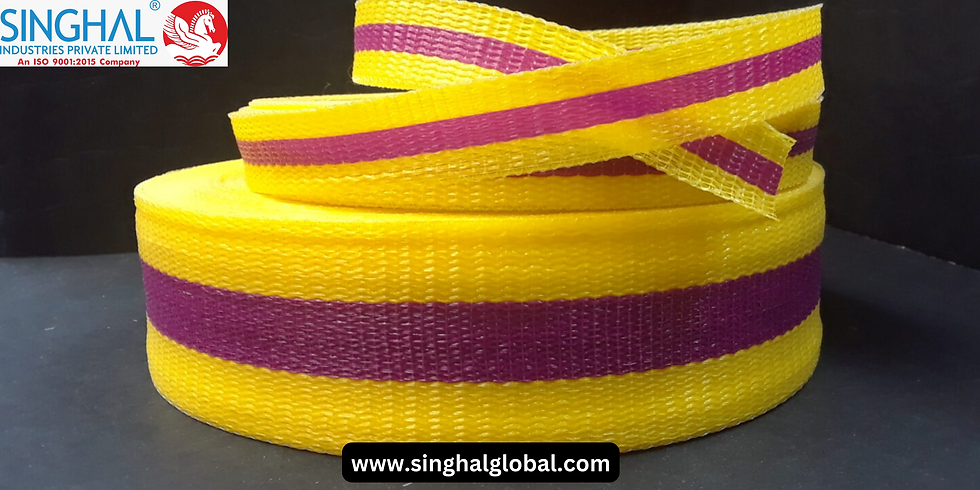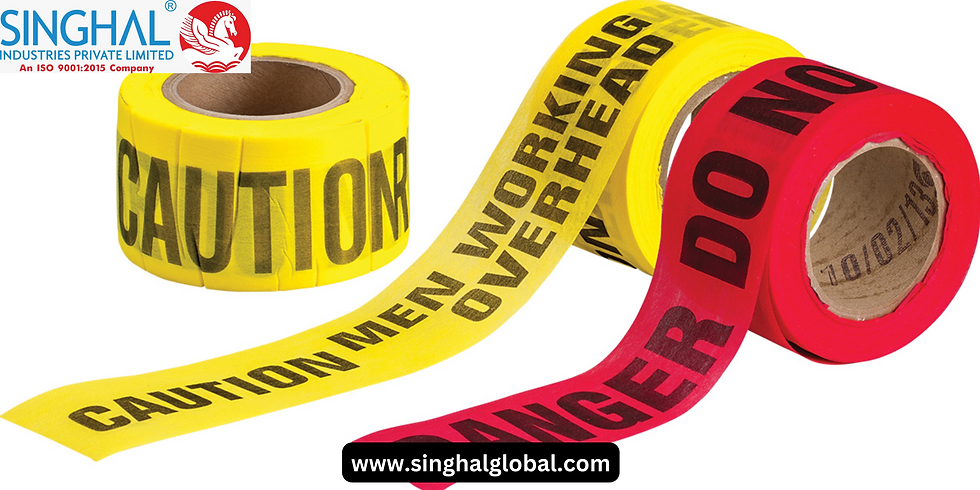PP Multifilament Yarn in the Construction Industry: Reinforcement Applications
- Arpit SEO
- Oct 31, 2023
- 4 min read

In the ever-evolving world of construction, innovative materials play a pivotal role in shaping the industry's future. One such material that's gaining popularity for its remarkable strength and versatility is Polypropylene Multifilament Yarn. This incredible product is manufactured by Singhal Industries Pvt. Ltd, one of India's most admired and leading packaging companies. In this blog, we'll explore the role of PP Multifilament Yarn in the construction industry, its applications in reinforcement, and delve into the manufacturing process, answering some frequently asked questions along the way.
Singhal Industries Pvt. Ltd: The Pioneers of PP Multifilament Yarn
Singhal Industries Pvt. Ltd has carved a niche for itself in the world of packaging. They are known for their unwavering commitment to quality and their continuous efforts to achieve the highest global standards in their products and services, benefiting the community at large. This dedication extends to their production of Polypropylene Multifilament Yarn, making them one of the leading PP yarn manufacturers in India.
What is Polypropylene Multifilament Yarn?
Polypropylene Multifilament Yarn, often referred to as PP Multifilament Yarn, is a synthetic textile material made from polypropylene, a thermoplastic polymer. It is a versatile and strong material known for its durability, resistance to abrasion, and low moisture absorption. These characteristics make it an ideal choice for a wide range of applications, especially in the construction industry.
Reinforcement Applications in Construction
1. Concrete Reinforcement
One of the primary applications of PP Multifilament Yarn in the construction industry is concrete reinforcement. The yarn is used to strengthen and improve the durability of concrete structures. By adding PP multifilament yarn to the concrete mix, builders can significantly enhance the tensile and flexural strength of the final product.
2. Road Construction
In road construction, the integrity and stability of the road surface are critical. PP Multifilament Yarn is used in the construction of roads to reinforce asphalt concrete and prevent cracking, rutting, and other structural issues. The yarn's high tensile strength helps in maintaining the road's longevity, reducing maintenance costs.
3. Geotextiles
Geotextiles are permeable fabrics used in geotechnical and environmental engineering. PP Multifilament Yarn is often incorporated into geotextiles to provide reinforcement and erosion control. It plays a crucial role in stabilizing soil and preventing soil erosion, which is particularly important in areas prone to landslides and erosion.
4. Roofing and Waterproofing
In roofing and waterproofing applications, PP Multifilament Yarn is used to reinforce roofing membranes and waterproofing materials. Its resistance to moisture and UV radiation makes it a perfect choice for enhancing the longevity and durability of these materials, ensuring they can withstand harsh weather conditions.
The PP Multifilament Yarn Manufacturing Process
The PP Multifilament Yarn Manufacturing Process is a complex and precise one. Singhal Industries Pvt. Ltd has perfected this process to ensure the highest quality of yarn.
1. Polymer Extrusion
The process begins with the extrusion of polypropylene polymer pellets. The polymer is melted and then extruded through spinnerets to form continuous filaments.
2. Filament Drawing
The extruded filaments are then drawn to reduce their diameter and increase their length. This drawing process imparts strength to the filaments, making them suitable for various applications.
3. Twisting
After drawing, the filaments are twisted together to form multifilament yarn. The level of twisting can be adjusted to achieve the desired properties of the yarn, including tensile strength and elasticity.
4. Heat Setting
To stabilize the yarn and enhance its dimensional stability, it undergoes a heat-setting process. This step ensures that the yarn retains its shape and properties even under extreme conditions.
5. Winding
The final step involves winding the PP Multifilament Yarn onto spools or bobbins, making it ready for distribution and use in various applications.
Frequently Asked Questions (FAQs)
1. What are the advantages of using PP Multifilament Yarn in construction?
PP Multifilament Yarn enhances the tensile strength of concrete, making structures more durable.
It prevents cracking and rutting in road construction, reducing maintenance costs.
The yarn is resistant to moisture and UV radiation, making it suitable for roofing and waterproofing.
In geotextiles, it helps stabilize soil and prevent erosion.
2. How can PP Multifilament Yarn benefit construction projects?
It increases the lifespan of structures and reduces maintenance costs.
It ensures the integrity of road surfaces, improving safety and performance.
It provides erosion control and stability in geotechnical applications.
It enhances the durability and weather resistance of roofing and waterproofing materials.
3. Is PP Multifilament Yarn environmentally friendly?
Yes, PP Multifilament Yarn is considered environmentally friendly due to its resistance to moisture and UV radiation. This durability ensures that structures and materials reinforced with this yarn require less frequent replacement or repair, reducing overall environmental impact.
4. Where can I purchase high-quality PP Multifilament Yarn?
Singhal Industries Pvt. Ltd is a renowned PP yarn manufacturer in India, known for producing top-quality PP Multifilament Yarn. They can be contacted for information on purchasing this versatile material.
In conclusion, PP Multifilament Yarn, produced by Singhal Industries Pvt. Ltd, plays a pivotal role in the construction industry, offering reinforcement solutions for a wide range of applications. Its strength, durability, and resistance to environmental factors make it a preferred choice for builders and engineers looking to enhance the longevity and performance of their projects. As the construction industry continues to evolve, materials like PP Multifilament Yarn will remain at the forefront, providing innovative solutions for a sustainable and resilient future.



Comments